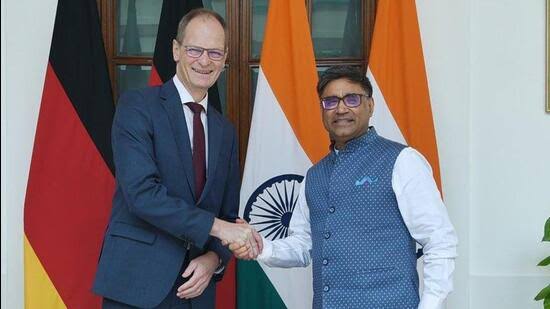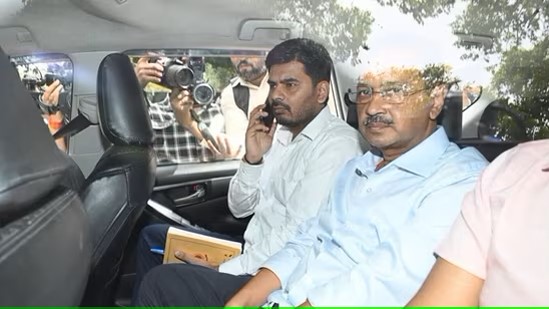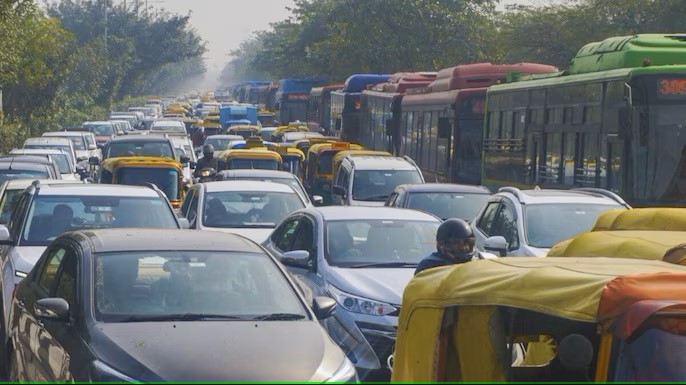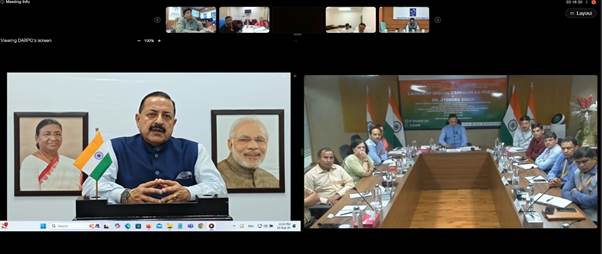In a warm and forward-looking meeting that reaffirmed the strength of Indo-German ties, the Minister-President of Bavaria, Markus Söder, met with India’s Union Minister of State (Independent Charge) for Science & Technology and Earth Sciences, Dr. Jitendra Singh, in New Delhi. The high-level interaction marked a significant moment in the longstanding partnership between the two nations in science, technology, and innovation.
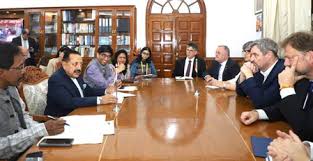 The two leaders engaged in a one-on-one conversation followed by a delegation-level meeting, signaling a shared commitment to deepening collaboration in critical and emerging sectors. Dr. Jitendra Singh warmly welcomed the German delegation, underscoring that the deep-rooted cooperation between India and Germany holds vast potential, especially in areas like Artificial Intelligence, Quantum Technologies, Clean Energy, Electric Mobility, Cyber-Physical Systems, and Green Hydrogen.
The two leaders engaged in a one-on-one conversation followed by a delegation-level meeting, signaling a shared commitment to deepening collaboration in critical and emerging sectors. Dr. Jitendra Singh warmly welcomed the German delegation, underscoring that the deep-rooted cooperation between India and Germany holds vast potential, especially in areas like Artificial Intelligence, Quantum Technologies, Clean Energy, Electric Mobility, Cyber-Physical Systems, and Green Hydrogen.
Expressing India’s intent to seek sustainable and inclusive solutions through scientific collaboration, Dr. Singh highlighted Germany as a natural partner in this journey. “India has embarked on mission-mode programs under the visionary leadership of Prime Minister Narendra Modi. We seek economic and sustainable solutions through scientific and technological interventions,” he said, adding that such efforts must be global in nature.
Dr. Singh praised the Indo-German 2+2 collaboration model, which links universities and industries from both countries, calling it a pioneering approach to innovation. This model, he said, is key to creating ecosystems that are ready to tackle future challenges with shared knowledge, co-development, and mutual benefit.
Reflecting on the rich history of Indo-German scientific partnership, Dr. Singh recalled last year’s Golden Jubilee celebrations of their cooperation in Science and Technology, and the recent Indo-German S&T Governing Body Meeting in Germany. He also fondly noted the deep cultural ties between the two nations, invoking Max Mueller’s historical contributions in bringing Indian philosophy to the Western world through his translation of the Upanishads and Rigveda.
Highlighting India’s strides in the biotech sector, Dr. Singh spoke proudly of the more than 3,000 startups that have emerged, and India’s status as the world’s largest vaccine producer. He also emphasized the newly launched BIOe3 policy, which aims to intertwine Energy, Economy, and Employment in the realm of biotechnology, ensuring that growth in this sector is inclusive and impactful.
The meeting also spotlighted India’s transformation into a hub for innovation, ranking third globally in startups and unicorns. Dr. Singh noted that the opening up of India’s space and nuclear sectors to private players offers new and exciting areas for Indo-German collaboration.
On the academic front, Dr. Singh shared that over 50,000 Indian students are currently enrolled in German universities, mostly in STEM fields—an impressive figure that has tripled over the past seven years. He called for greater reciprocity, encouraging more German students to study in India and immerse themselves in Oriental Studies, Indian culture, and traditional knowledge systems.
“Germany has become a favoured destination for Indian youth. Now we hope to see German students exploring India’s intellectual heritage and scientific promise,” Dr. Singh said. He fondly recalled his recent visit to Berlin, where he observed with delight the growing popularity of Indian cuisine and culture, with locals flocking to Indian restaurants across the city.
The German delegation, led by Minister-President Markus Söder and accompanied by German Ambassador Dr. Philipp Ackermann and other senior officials, expressed strong enthusiasm for strengthening bilateral cooperation. From the Indian side, senior officials from the Department of Science and Technology and the Department of Biotechnology also joined the discussions, further cementing a partnership rooted in mutual respect and shared aspirations for a better, technology-driven future.

